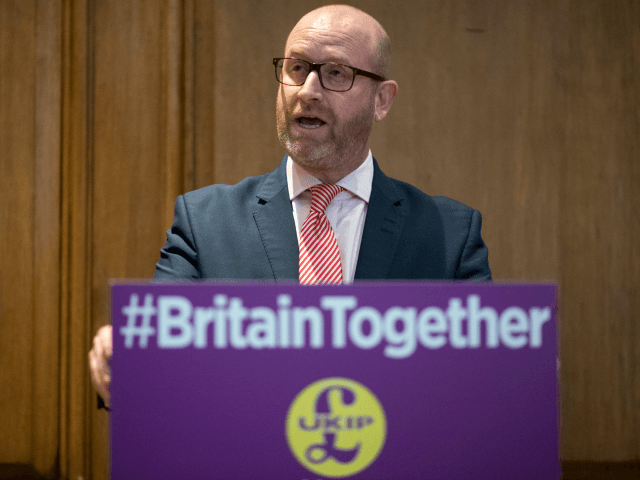UK Independence Party (UKIP) leader Paul Nuttall has suggested bringing back internment for jihadists who are thought pose a threat to the nation, detaining them without trial.
A policy of internment was adopted by the government in Northern Ireland in the 1970s during the Troubles, and Mr. Nuttall said he “wouldn’t take anything off the table” when considering how to deal with the Islamist threat today.
“I think we’ve got to look at ways of ensuring that our people are safe, whether that is a return to control orders, whether that is tagging these people, who knows in the future maybe a return to internment,” the UKIP leader said.
He stressed the size of the jihadist threat, referring to shock new numbers released last week.
“When you read this morning there’s a suspected 23,000 jihadis living amongst us, obviously MI5 are stretched to capacity at this present moment in time,” he told BBC One’s Sunday Politics show.
Around 340 people suspected of being involved with the Irish Republican Army (IRA) were arrested and detained in 1971 as part of Operation Demetrius, after the UK government notified the European Council of a “public emergency”.
Mr. Nuttall used the interview to reaffirm his support for “hard measures” generally, after UKIP last week put security, counter-terrorism, and integration at the forefront of their general election manifesto.
They promised thousands of new police and border officers, a “balanced” net migration of zero, pledged to deport extremists, strip returning jihadists of citizenship, and fight the “Islamisation” of schools, and female genital mutilation (FGM).
The party also announced a “compatibility test” for migrants entering the UK, promising to not allow in those who were anti-Western and did not accept gay and female rights.
“We are the only ones that are coming up with an agenda to improve integration in this country,” Mr. Nuttall said in the BBC interview this weekend.

COMMENTS
Please let us know if you're having issues with commenting.